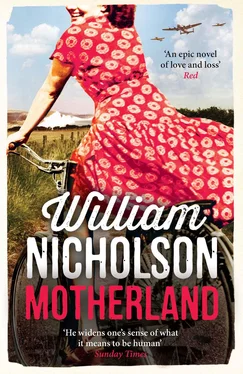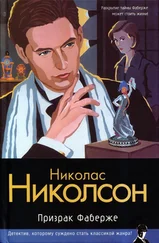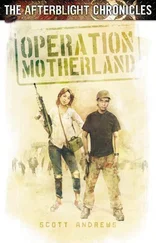She folds the letter up and puts it in her suitcase to send when she gets home. Then as she straightens up again she feels a tightness in her chest, and a tingling of the skin of her breasts. All at once it comes to her.
I’m pregnant.
This simple immense fact drops into her mind like a key into a lock. Suddenly everything makes sense. The constant fatigue, the mild nausea, the metallic taste in her mouth.
I’m going to have another baby.
Of course there’ll be doctors to visit, tests to endure, but she knows it beyond any possibility of a doubt. Her body is telling her. And as for all her questions about the future, they are already melting away. There is no future. She is to have another baby. With a baby there is only today, and today, and today.
28
The camp followers, as Pug Ismay calls them, arrive in the viceregal aeroplane in early May, just as the temperature in Delhi is rising to unbearable levels. A crowd of exhausted children come tumbling down the steps: three Brockman girls, a Nicholls boy, two little Campbell-Johnsons shepherded by Alan’s wife Fay. Ismay’s grown-up daughters Susan and Sarah follow, with Rupert Blundell’s sister Geraldine.
That evening Larry is invited to join the Campbell-Johnsons and Rupert and his sister for a drink at the Imperial hotel in honour of the new arrivals.
They sit in the gardens, in low basket chairs, drinking gin and lemonade. After sundown the air is cool and pleasant. The perfectly kept lawns are lit by soft lamps. The tinkling of tonga bells sounds from the street beyond the walls. Turbaned servants stand discreetly by the open doors to the hotel, waiting to fulfil the guests’ needs.
‘Rupert, this is heavenly,’ says Geraldine. ‘And to think you’ve been making such a fuss.’
‘I got cold feet about her coming out,’ Rupert says to the others.
‘This isn’t the real India, I’m afraid,’ says Alan.
‘I suppose you mean it isn’t the India of the poor,’ says Geraldine. ‘But at home I don’t live in the England of the poor either. Perhaps I’m simply not real.’
She speaks with a smile in her voice, and they laugh as if she has made a joke, but Larry senses from the first that, like Rupert, she’s someone who knows her own mind. To look at she’s delicate, even fragile, with her pale perfect skin and her slender figure. The way she moves her head or her small hands is economical and precise, performing just enough of an action to achieve her object. She seems to be quite unaware how pretty she is, and entirely lacks the little tricks of flirtation that others take for granted. Modest, then, but also proud.
The men smoke, but both the ladies decline. Geraldine barely touches her drink. Alan catches sight of Colin Reid of the London Daily Telegraph , and beckons him over to join them.
‘Colin’s a real expert,’ he says. ‘He’s studied Muslim culture in the Middle East. He’s even read the Koran in Arabic. Am I right, Colin?’
‘More than once,’ says Colin. ‘Don’t quote me on this, but I know my Koran rather better than Muhammad Ali Jinnah.’
‘Which one’s Jinnah?’ says Geraldine.
‘He’s the leader of the Muslim League,’ says Larry.
‘So tell us,’ says Alan to the Telegraph man. ‘Is this Muslim–Hindu division really about religion, or is it something else?’
‘That’s rather a broad question,’ says Colin Reid.
‘Religion is always something else, surely,’ says Rupert. ‘I mean, religion is not just about what you do on the holy days. It’s how you see your life.’
‘I should explain,’ says Alan. ‘We’re surrounded by believers. Rupert and Larry both went to the same Catholic school. I expect Geraldine is one of them too.’
‘Certainly,’ says Geraldine with a pretty smile. ‘Like all the best people.’
‘But Rupert’s perfectly right,’ says Colin Reid. ‘Religion is more about identity and community than creed. And I’m afraid the different communities here are moving further apart every day.’
He and Alan and Rupert then get into a discussion about the nationalist leaders and whether they can ever find common ground. Geraldine, who is sitting near Larry, turns to him and asks him in a low voice, ‘Did Rupert always know best at school?’
‘I’m sure he did,’ says Larry, smiling. ‘But I didn’t really know him. He pretty much kept himself to himself. He was in my house, but in the year above me.’
‘I expect you’ve lost your faith too.’
‘No, not yet. Is that what I’m supposed to do?’
‘I rather got the impression that Downside has that effect,’ says Geraldine. ‘You either come out a monk or an atheist.’
‘No, I’m still a muddled but willing believer.’
‘Me too. I expect it’s very dull of me, but I like there being rules. Fish on Friday. Mass on Sunday. Prayers at bedtime.’
‘It’s because it’s what we’re used to,’ says Larry.
‘No,’ says Geraldine. ‘It’s what Rupert said. It’s about how you see your life. Once you decide there’s a right way to live your life, then that’s what you want to do.’ She stops, putting one hand to her pretty mouth, as if suddenly afraid she’s said the wrong thing. ‘I’m so sorry. I’m being serious. How bad-mannered of me.’
At the same time her eyes are laughing.
‘I led you on,’ says Larry. ‘We’re equally guilty.’
‘It’s because those rude men are talking Indian politics. Fay,’ she says, turning to Alan Campbell-Johnson’s wife, who is all too visibly falling asleep, ‘Where have you hidden the children?’
‘The children?’ says Fay, blinking back to wakefulness. ‘I’m taking them up to Simla, to get away from the heat.’
‘They’re such darlings,’ Geraldine says to Larry. ‘They were so good in that beastly plane. Fay, you need to be in bed. And so do I, to tell the truth.’
Larry is charmed by the graceful way Geraldine handles herself. He realises how much he misses feminine company; and in particular this way of speaking lightly while touching on serious matters. There’s something else, too. He has the sense that Geraldine likes him.
As the party breaks up she says to him, ‘I’m so glad you’re out here. Rupert simply refuses to go to Mass any more. He’s supposed to be a philosopher, but as far as I can tell he believes in nothing at all.’
* * *
That Sunday Larry accompanies Geraldine to the Sacred Heart on Connaught Place, a curious Italian-style church built only a few years before the war. Inside, with its rounded arches and long nave, its smell of burning candles and wood polish, it could be any Catholic church in the world. Geraldine kneels beside him, her face partly obscured by a black lace mantilla, and murmurs the responses in that absent but familiar way that is common to all Catholics. The words they speak are after all in Latin, and essentially meaningless incantations. And yet to Larry this itself is comforting. The mass in Delhi is identical to the mass at home. The raised hands of the robed celebrant, the tang of incense in the air, the tinkle of the consecration bell: he could be in the Carmelite church in Kensington, or Downside Abbey, or St Martin in Bellencombre, and it would all be the same.
After Mass they find their driver waiting in the hot sun, and drive back along the broad new roads of the imperial capital. New Delhi has the look of a city built for giants who have not yet got around to moving in.
‘Or perhaps,’ Larry says, elaborating his thought, ‘they built it and then abandoned it, like Fatehpur Sikri.’
Geraldine hasn’t heard of Fatehpur Sikri.
‘It was the first Mughal city, built by Akbar the Great. But it turned out there wasn’t enough water there, so they abandoned it after only fourteen years. It took fifteen years to build. It’s been left to the sun and the wind for almost four hundred years now.’
Читать дальше












